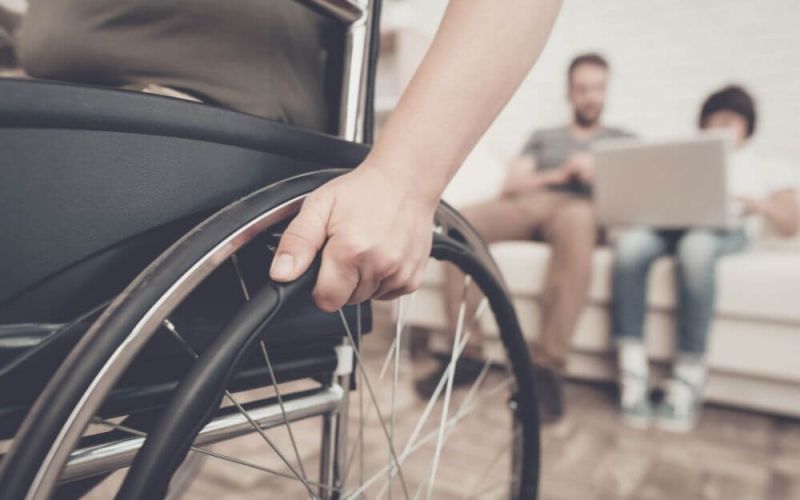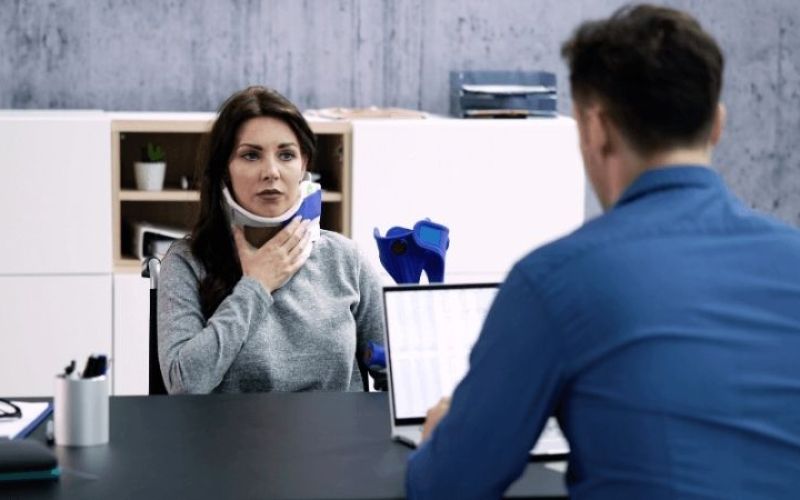Virginia Traumatic Brain Injury Lawyer


Suffering a traumatic brain injury (TBI) is different from other types of personal injuries because damage to brain cells does not heal, unlike broken bones or skin cells. As a result, a TBI, even mild ones, can have a devastating and lasting effect. If you, or a loved one, suffers any type of head injury, no matter how mild it seems, seek professional medical attention immediately. Even if you do not think an injury to the head is serious, it is important to still be seen.
TBIs can be silent and deadly. Any head trauma is cause for serious concern, and the worst part is that people who are injured might not even know they have a traumatic brain injury until it is too late. TBI has long been known as the “silent epidemic” because for decades it was difficult for people to be correctly diagnosed. With modern knowledge and technology, doctors know a lot more about brain injuries now than they even did as recently as the 1990s. The earlier treatment is sought, the better chances are for recovery.
The kind and compassionate Virginia traumatic brain attorneys at Montagna Law understand the difficulties you might face after sustaining a TBI. Call our law office at 757-622-8100 or contact us online to see how to receive help getting the compensation you deserve after your personal injury.
Traumatic Brain Injury Statistics
TBI can be caused in two different ways: internal or external. External brain injury is caused by a bump, blow, or jolt to the head, or penetration through the skull. Internal brain injuries can be caused by birth defects, stroke, or aneurysms. Regardless of the type or cause, brain injury is life-changing and often permanent. According to the U.S. Centers for Disease Control and Prevention (CDC), every year in the United States:
- More than 1.5 million Americans experience TBI
- 230,000 individuals are hospitalized with TBI and survive
- Over 50,000 traumatic brain injury cases are fatal
- Somewhere between 80,000 to 90,000 experience onset of long-term disability
Despite these chilling numbers, there are those who manage to beat the odds. Not only do many survive a traumatic brain injury, but they are able to recover. The personal injury lawyers at Montagna Law want to spread awareness and knowledge about this serious and life-changing condition.
Did You Lose Consciousness in a Serious Accident?
TBIs are categorized as mild, moderate, and severe. About 80% of TBI cases are classified as mild, but do not let the “mild” designation fool you. These injuries—which include concussions—can still cause serious injury or permanent disability.
If a person experiences a loss of consciousness during an accident, it should be taken very seriously. Medical treatment should be sought immediately because the longer a person is unconscious, the more serious the traumatic brain injury might be. Even if the injured person feels dazed or dizzy, symptoms should never be dismissed.
Non-Traumatic Brain Injury
Non-traumatic brain injuries are typically caused by internal health complications. These can be caused by strokes, blood clots, seizures, oxygen deprivation, infection, tumors, or exposure to substances that can lead to brain injury. Medical malpractice or negligence often contributes to non-traumatic brain injuries.
Traumatic Brain Injury
Traumatic brain injuries occur when the head suffers an injury from an external force, such as impact, shaking (excessive motion), or penetration. Common ways people are injured include car accidents, bike accidents, being struck by an object, slips and falls, gunshots, and other types of violence.
The symptoms of TBI may not surface until weeks, days, months, or longer after the injury, especially if the injured person is a child since their brains are still developing.
What Are the Primary Types of Traumatic Brain Injuries?
The CDC estimates that 5.3 million Americans currently suffer a permanent TBI-related disability and the latest CDC data indicates numbers are growing. Leading causes of TBI include:
- Falls – 35.2%
- Motor vehicle accidents – 17.3%
- Struck by/against – 16.5%
- Assault – 10%
- Unknown/other – 21%
When it comes to traumatic brain injuries, much like no two brains are alike, neither are types of injuries to the brain. Unfortunately, there are several types of TBIs that cause life-altering changes in an instant.
Concussion
A concussion is a mild TBI and is typically caused by a blow, bump, jolt to the head, or rapid shaking to it. There is no such thing as “just a concussion”—concussions should always be taken seriously.
Diffuse Axonal Injury
Diffuse axonal injury (DAI) occurs when shearing (tearing) is experienced on the brain’s connecting nerve fibers (axons). This is a serious type of TBI and can lead to a person falling into a vegetative state.
Edema
Edema occurs when the brain (or head) experiences swelling. While swelling is a body’s reaction to an injury, when it occurs in the brain it is serious because the skull cannot accommodate the swelling or interferes with fluid circulation; sometimes surgery is necessary to relieve pressure.
Hematoma
Hematoma is bleeding occurring in the brain that can lead to the formation of a blood clot, creating a buildup of blood and pressure that can cause brain damage.
Hemorrhage
Hemorrhaging in the brain is when uncontrolled bleeding occurs and can lead to irreversible brain damage.
Skull Fracture
Skull fractures are when an external object breaks the bone due to a severe impact that the skull cannot absorb.
Contusions
Contusions are bruises on the brain caused by bleeding—they are often serious and can lead to permanent injury or the necessity of surgery.
Coup-Contrecoup
Coup-contrecoup TBIs are when the brain experiences a hard impact and the brain (or skull) “slams” into the opposite side, causing injury to both halves of the brain.
Brain Stem
Damage to the brain stem can impact heart regulation, body temperature control, eye movement, breathing, blood circulation, swallowing, and consciousness.
What Are Common Causes of TBIs in Virginia?
TBIs can occur in a variety of ways. Some of the most common causes of traumatic brain injury include:
Auto Accidents: Car, Truck, and Motorcycle
In car or truck accidents, the head can strike the dashboard, windshield, side window, or another hard surface, such as being thrown to the ground. Shaking and coup-contrecoup injuries can also occur on impact. Any of these scenarios can lead to a severe brain injury.
Slipping and Falling
A fall down the stairs, slipping on a wet floor or ice, or other causes of tripping can lead to the head suffering a jolt or shock and a TBI.
Medical Negligence
Ways patients suffer TBIs from medical negligence include lack of oxygen to the brain, prolonged surgery, and anesthesia errors. Birth injuries can also lead to TBI due to poor decision-making or delayed action by a medical professional. Sadly, TBIs occurring due to medical negligence are often preventable.
Sports Injuries
Concussions and more severe TBIs are common in sports. Being hit by a ball, tackled and slammed on the ground, or another type of impact can lead to a life-altering TBI.
Physical Attack
Domestic violence and criminal acts against a person often involve altercations where the brain is injured, especially if the victim is hit, pushed, struck by an object, or shot at with a firearm.
Firearms
Firearms can cause either penetrating or perforating TBIs. Penetrating is when a bullet enters the skull but does not exit. Perforating TBI is when the bullet enters and exits the skull.
What Are the Long-Term Effects of a Traumatic Brain Injury?
The long-term effects of TBI will depend on the location of the head injury. It is also unfortunately common for TBI victims to suffer more than one type of TBI which also further impacts their long-term outcome.
For instance, injury to the frontal lobe (including the forehead) can affect reasoning, problem-solving abilities, judgment, impulse control, planning, and other executive functioning skills. Injury to the left side of the brain can lead to problems with speech, comprehension, and logic, while injury to the right side of the brain can result in visual processing deficiencies and the ability to perform routine or familiar tasks.
Balance Issues
Individuals suffering from TBI often have difficulty with motor skills, including balance. The inability to balance oneself puts a person at risk of falling or hitting their head, causing further injury.
Dizziness
The dizziness that can accompany a TBI can lead to everyday problems, causing a decrease in the quality of life.
Eyesight Issues
Traumatic brain injuries causing eyesight issues affect the actual ability to see (including blindness), but they also affect the ability to perform eye movements, such as downgaze or convergence. Eyesight problems can negatively impact everyday activities, ranging from reading the pages in a book to driving.
Fatigue
People suffering TBIs tend to tire easily, and this fatigue affects their stamina, meaning victims often cannot work long days, struggle in the classroom, or suffer from an inability to stay awake for extended periods of time.
Headaches
Recurring and persistent headaches often accompany TBI, causing disruption in everyday life, leading to distress and ongoing suffering.
Long-Term Memory Loss
Long-term memory loss from TBI can be temporary or permanent. In these cases, the person has difficulty remembering past events or people. It can also affect the ability to remember how to perform tasks or remember common words.
Short-Term Memory Loss
Short-term memory loss from TBI occurs when a person forgets events that have recently happened. Essentially, conversations, things seen or heard, and other events are never processed to be stored in short-term memory. For example, injured people may not remember people they have met, whether they have eaten, or where they were going.
Mood Swings
Many people who have a loved one suffering from a TBI describe them as a “different person” from before the injury. Depending on the nature of the injury and where in the brain it occurred, a person may experience unusual mood swings or display behaviors deemed inappropriate in social or professional situations.
Paralysis
Some TBIs result in paralysis because the injury has disrupted the brain’s ability to communicate with muscles. When signals are interrupted, the muscles never receive the brain’s direction.
Seizures
Seizures, or abnormal electrical activity in the brain, are common with TBIs, and it is difficult to predict when and if they will occur. Many brain injury victims are considered to forever be at high risk of seizures. The severity of a seizure is also unpredictable—some are barely noticeable while others result in grand mal seizures.
Speech and Language Problems
Depending on the area of the brain injured, some people struggle with the ability to speak, pronounce sounds, or cannot extract the words to speak even if they know what they want to say; this disconnect can dramatically impact the ability to engage in everyday conversations.
The long-term effects of TBI are often difficult to assess; most people will find their injury changes at various stages of their life, either for better or worse. TBI victims often struggle with permanent physical, behavioral, or cognitive changes—all of which can affect their ability to do tasks or negatively impact their relationships and other interactions requiring social skills.
What Is the Statute of Limitations for Filing a Personal Injury Claim in Virginia?
In Virginia, the Commonwealth places a two-year statute of limitations from the date of an accident. This means the clock “starts ticking” when the injury occurs. This is why it is very important to seek treatment as soon as possible to ensure the injury is well-documented.
How Does an Attorney Help TBI Victims?
Having an attorney by your side is important when any type of personal injury occurs. When TBI occurs, you will want an attorney experienced in brain injury cases who understand the long-term effects. Proving seen—and not yet seen—deficiencies and impairments can be challenging. TBI victims will also benefit from a law firm that can help them deal with insurance companies to help them obtain compensation.
Sensitive and Professional Personal Injury Attorneys in Virginia
If you or a family member have suffered any kind of head injury or wrongful death, it is important to speak to a personal injury attorney as soon as possible.
The Virginia brain injury lawyers at Montagna Law are ready to fight on your behalf to help you or a loved one regain health and recovery. Please do not hesitate to contact us. Our sensitive and professional attorneys can help you to obtain the compensation needed to pay for medical bills, surgeries, loss of wages, rehabilitation, and other medical care expenses to help you make the best recovery possible.
To request a free consultation from a Virginia traumatic brain injury lawyer, call our legal team at (757)-622-8100.
Latest Blog Posts
-
If you’re looking for someone who’s professional, attentive, serious, caring, and negotiable than Mr. Anthony Montagna is who you need. He understood his assignment and delivered well especially being with what I was looking at in my case. I want …– Tiara S.
-
I don’t know how he does it, but this man is a monster in the courtroom. I’ll admit I had fears of the outcome of my case, but when I was with Mr. Montagna in front of a judge. My confidence started to raise. Extremely professional and how he hand…– BD P.
-
Honestly , Mr. Montagna treats like you are his family the way he cares, he takes care of his people , I was doing triple digit speed on a 60 and lord I thought it was over for me in that courtroom , he’s a genius because I literally got away with…– Justin
-
I have been a client of Montagna Law since 2014. Because the customer service is exceptional, I have established a rapport with everyone in the office. As a customer for 8 years, it is noted that this firm goes above and beyond for the clients.– Eric E.
-
Montagna Law are wonderful attorneys. I was diagnosed with stage 4 lung cancer and they assisted me from day one when I contacted them. I highly recommend their services! Thanks guy’s and gal’s for your services!– Kevin B











